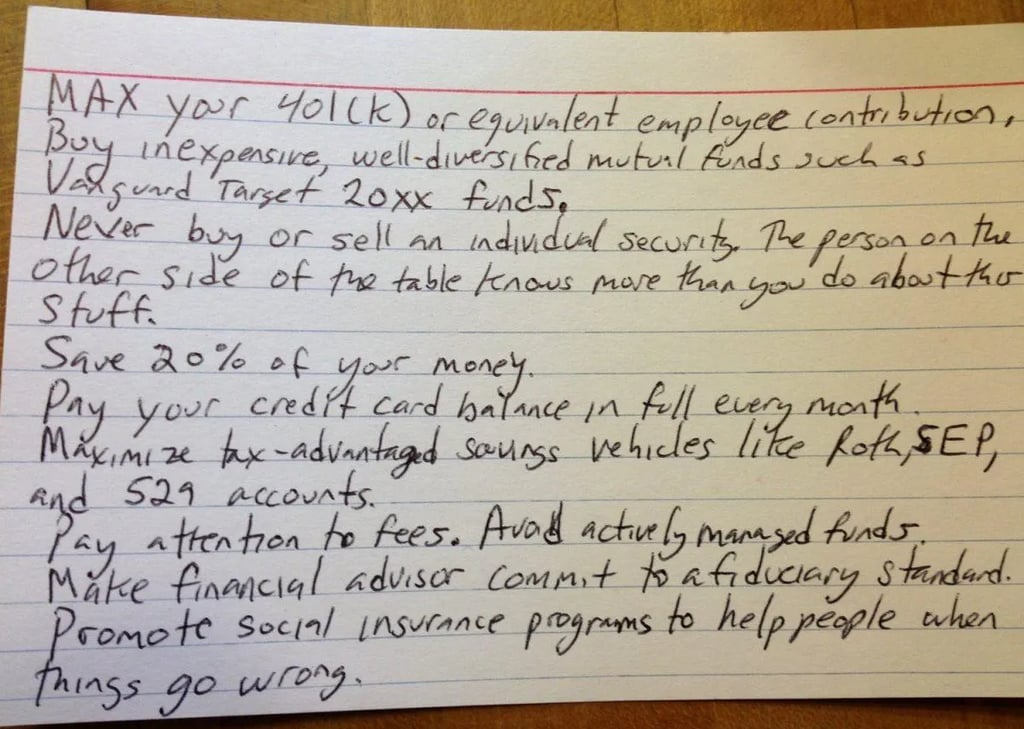The Index Card: Why Personal Finance Doesn't Have to Be Complicated
Review of the book by Helaine Olen and Harold Pollack


The path to financial literacy and security can be bewildering. Plenty of gurus, highly paid financial professionals, and opinionated talking heads purport to know the true way toward financial success. Then there are the Ponzi schemers, snake oil salespeople, and outright fraudsters who successfully swindle intelligent people out of their hard-earned money.
In an interview with Helaine Olen, a personal finance writer, Harold Pollack indicated that understanding personal finance is relatively easy. Specifically, he noted that the main principles could fit on an index card. After receiving requests to produce this index card, he posted it online and the post went viral. You can see the index card pictured above.
Olen and Pollack teamed up to elaborate on these rules for the book The Index Card: Why Personal Finance Doesn’t Have to Be Complicated. The rules then form the chapter titles for the book where the authors elaborate on:
Strive to Save 10 to 20 Percent of Your Income
Pay Your Credit Card Balance in Full Every Month (and How to Deal with Other Forms of Debt)
Max Out Your 401(k) and other Tax-Advantaged Savings
Never Buy or Sell Individual Stocks
Buy Inexpensive, Well-Diversified Indexed Mutual Funds and Exchange-Traded Funds
Make Your Financial Advisor Commit to the Fiduciary Standard
Buy a Home When You Are Financially Ready
Insurance-Make Sure You Are Protected
Do What You Can to Support the Social Safety Net
Remember the Index Card
I highly recommend this book for its simplicity and reinforcement of a broad consensus of financial advice. Undoubtedly, many more Americans would be in better financial shape if they followed the advice outlined in this concise book. Further, both authors included personal stories where they had made financial errors earlier in their lives, which helps to normalize inevitable financial mistakes that we all have committed and to demonstrate that no one has to be perfect in the financial domain.
The Index Card could benefit from more concrete details for some readers. For example, the insurance chapter discusses what type of life insurance to purchase, but makes no recommendation for how much coverage an individual or family needs. For a personal finance book that covers similar ground in greater detail, Financial Planning for Dummies is an excellent option. Just don’t let the potential implications of the book title put you off.
